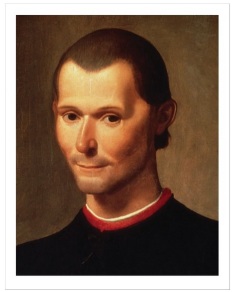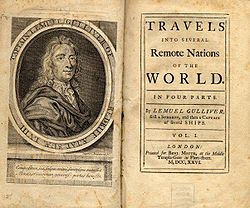Pride and Dependence: Konstantin Levin in Tolstoy’s “Anna Karenina”
In his creation of Konstantin Levin, Tolstoy introduced a character whose attention was constantly presented to the reader but often hidden from the man himself. Granting attention is surely a manifestation of agency, and thus an intention to move towards the attended object, person, or role. Levin’s pride spurs him to aim at an identity that he cannot feasibly inhabit. Only by granting attention to Kitty and allowing his ego to envelop her is he able to settle into his proper role and flourish.
It is important to clarify that pride is not here used in a self-aggrandizing sense. Certainly Levin, the man who blushes at every comment and says the same witticism twice, does not view himself above others. In fact, Levin readily admits that he is “pathetic and worthless in his own eyes” (p. 344). What pride means here, then, is not lofty thoughts of himself, but simply thoughts only of himself. That is, we may call Levin prideful in moments when he considers the world through an egoistic lens.
We may greet Levin and his pride at the brief period in which he first attempts to implement a new style of farming on his Pokrovskoe estate (P. III, Ch. 28-30). After having discussed the epidemic losses generated by “rational” Russian farming, Levin decides to install a system that considers his workers not as a European workforce but as the Russian muzhik (p. 338). This new method grants muzhiks a share of the profits in an effort to give them an investment in the productivity of the estate. According to Levin, this method will increase profits two- or three-fold for both the landowner and the peasant.
Yet Levin is completely unconcerned with the feasibility of his plan, instead noting naively that “how to [implement the system] is a matter of details” (p. 338). As he encounters difficulties, he simply proceeds with blind optimism. Notice the anaphora of the word “True” in Chapter XXIX: “True, in the cattle-yard things went no better than before . . . True, Fyodor Rezunov’s company did not cross-plough their land before sowing, as had been agreed . . .” and again thrice more (p. 340-1). The repetition emphasizes the near totality of inconveniences that plague Levin’s system and his concession to them. And still, after all these concessions, Levin responds with “But . . . everything would go by itself.” He expresses that “by having it his way,” the system would eventually prove profitable, presumably strictly because Levin believed in the idea. Clearly, then, Levin cares not to see the difficulties of his endeavor, nor to actively solve them, but instead presses blindly forward with his vision focused only on his idea and the notion that it is precisely his.
Levin’s pride, though, is not limited to his vision. That is, he does not simply see the unfolding of his plan with a blind egoism, but surely uses that pride to motivate his actions. Consider his rant to Agafya Mikhailovna: “This is not my personal affair, it is a question here of the common good . . . In short, a revolution, a bloodless but great revolution, first in the small circle of our own region, then the province, Russia, the whole world” (p. 344). Certainly, this appears to portray Levin as precisely un-prideful. He goes on, however, to change his tune: “I’m not concerned with [muzhiks], I’m doing it for myself.” This is the sentiment that is masked by the first rant: Levin sees his system, and the revolution it may spur, not as improvements for others, but as a source of identity. It is as his brother Nikolai so acerbically put it: “You don’t want to set up anything, you simply want to be original” (p. 351). And precisely because the system can supply Levin with an identity all his own, that of a revolutionary Russian farmer, he hardly concerns himself with Dolly and Sviyazhsky, whom he has effectively abandoned after his rudeness towards each one, respectively. The business of his system has so consumed his life that the lives of others “made no difference to him now” (p. 341).
The establishment of identity is most clearly explained when considered in juxtaposition with Levin’s comment to Agafya Mikhailovna: “And the fact that it is I, Kostya Levin, the same one who came to the ball in a black tie and was rejected by Miss Shcherbatsky . . . proves nothing” (p. 344). This comment, a part of the rant mentioned above, must also be considered as part of Levin’s motivation in establishing the system and an identity attached to it. Recall the attachment that Levin once had—and likely still does have—to Kitty. By attaching his identity to the new system, he can separate himself from the pain he felt by Kitty’s refusal. Surely, all his efforts towards the implementation of his pride-driven plans are essentially efforts at creating a stable, yet Kitty-deprived identity. That the system, while not disastrous, certainly does not spur a revolution, and thus does not grant Levin the role of revolutionary, is not a surprise, for Levin will proceed to reunite and marry Kitty.
When we encounter Levin once again at Pokrovskoe, he has just returned from Moscow with his new bride (P. V, Ch. 14). His pride, too, returns under the guise of blissful expectations. Consider how Levin predicted his married life to unfold: “In his own future married life, he was convinced, there not only could be nothing like [trifling cares, quarrels, or jealousy], but even all its external forms, it seemed to him, were bound to be in every way completely unlike other people’s lives” (p. 480). He expects his life to be an exception from those of all others, that his role will somehow be different from that of all other husbands. This is simply not the case. As Levin notes, marriage was not what he imagined, nor did his life with Kitty form itself in any special way (p. 479-80). And as Tolstoy emphasizes, Levin was precisely “like all men” in misconceiving the notion of family life (p. 480).
It is not simply that his egoism is damaged by his conformity, however. He has returned to Pokrovskoe with a new target of attention—Kitty—and chooses, presumably out of love, to grant his attention to her rather than to himself. While Kitty fusses over the cook, the trays, the curtains, and the maid, we would expect the prideful Levin to scoff at such unimportant concerns and become slightly insulted by Kitty’s lack of affection for him. Indeed this is partially what Levin does: he is often offended and confused by Kitty’s ability to concern herself with “extraneous things” (p. 480). Nevertheless, he finds that he “could not help” admiring them (p. 480). Even more telling, however, is Levin’s account of their first quarrel. After Kitty’s rather needless fit of jealousy upon Levin’s late arrival home, Levin first felt “one habitual feeling [that] urged him to shift the blame from himself to her.” This is the lingering manifestation of Levin’s pride. Yet the other, “stronger one urged him quickly, as quickly as possible, to smooth over the breach and keep it from growing bigger” (p. 481). This is a new thought, a lens through which Levin sees the world not only by egoism, but also by care for another. Granting his attention to Kitty has grafted in a new mode of vision inextricably linked to his love for her.
For Levin, the marriage union was not simply societal, but spiritual, and in that we are able to further explain this evolution. What Levin here experiences for the first time, other than quarreling with his wife, is a sense of unity with her. He came to understand “not only that she was close to him, but that he no longer knew where she ended and he began” (p. 482). In short, Levin discovered that “she was him” (p. 481). Now, a pain for her is a pain for him; a joy for her, a joy for him; and a thought for her, a thought for him. This is precisely the root of Levin’s change: whereas his pride once consisted of thinking strictly of himself, he cannot, after his marriage, think of himself without also thinking of his wife, and vice versa. His pride encompasses her life, concerns, grief, and happiness. Accordingly, he does not have to lose his pride to care for Kitty but only make space for her within it.
When we encounter Levin yet a third time at Pokrovskoe, we can fully experience the changed nature of his pride (P. VIII, Ch. 10). Tolstoy here provides us with an image of Levin’s actions over the course of the summer that may be characterized as necessitated living. For instance, Levin notices that his activities “occupied him only because it seemed to him that he had to do what he was doing—that he could not do otherwise” (p. 790). Levin, then, considers all his acts, and the means by which he does them, necessary, and justifies their doing accordingly so. When he farms personally, it is necessary. When he visits his wife while a muzhik waits, it is necessary. When he punishes a worker for felling timber but not for letting cattle astray, it is necessary. Everything he does is evaluated by “an infallible judge who decided which of two possible actions was better and which was worse; and whenever he did not act as he should, he felt it at once” (p. 791). But, surely, we must ask: what is this infallible judge? What is making these actions necessary? Levin is certainly not obligated to do them; his feeling of necessity must still be the act of a will. And they precisely are, but indirectly. Levin has chosen to attend to Kitty, and his pride has ever since encompassed her needs. Thus, his actions must in part be driven by the needs of Kitty. That Levin extended this concept of care to those around him, making his actions towards the peasants and others feel “necessary,” is likely, too.
We must still answer one more question: what is Levin’s role? As elucidated above, he is certainly not a revolutionary, nor an exception to any societal standards. He is not above all those around him, although he often wishes to believe that he is (think Stepan Arkadyich or Sviyazhsky). Instead, he is precisely what others need him to be. For his wife, a husband and lover. For his son, a father and provider. For Sergei Ivanovich, a brother and manager. For the muzhiks, an employer and advisor. His attention to and union with Kitty have drawn him into the role that she needed him to inhabit, and he subsequently settled into those needed by all others.
This is not to claim, however, that Levin is aware of this role, of his purpose, or of his dependence on Kitty. In fact much of the turmoil that he faces near novel’s end is centered on this confusion. For example, “when Levin thought about what he was and what he lived for, he found no answer and fell into despair” (p. 789). Later, when he notes that “reasoning led him into doubt,” we encounter the same sentiment of the turmoil of abstract thought for Levin (p. 791). But this storm resides completely in Levin, in the realm of his soul that he could not share with the purity of Kitty. That is, Kitty does not share all of Levin, and she is not a panacea for his turmoil. This storm resides in the part of his soul that remains Kitty-deprived. But, as the scene above depicts, this part of his identity does not affect his practical reasoning. In fact, it must be blocked off for Levin to act at all: “when he stopped asking himself about it, he seemed to know what he was and what he lived for, because he acted and lived firmly and definitely” (p. 789). So Levin’s practical reasoning resides entirely within the space that he and Kitty share and therefore must be considered as dependent upon her.
To consider Levin as dependent upon Kitty is not an attack on his independence. This argument does not aim at implying that Levin cannot live without his wife. Instead, it aims simply to show that Levin cannot achieve his greatest happiness or find his true identity without her. Levin is all too often blinded by his own thoughts; he simply needs a light, namely Kitty, to show him the way.


